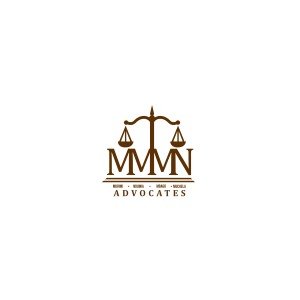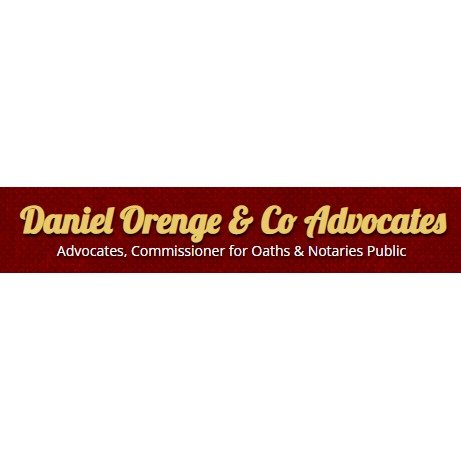Best Corporate Governance Lawyers in Mombasa
Share your needs with us, get contacted by law firms.
Free. Takes 2 min.
List of the best lawyers in Mombasa, Kenya
Legal guides written by Adroit Law LLP:
- Kenya Launches Digital Nomad Visa: A Gateway for Remote Workers
- Navigating the Payment System License Maze in Kenya
- Navigating the Complexities of Mining Licenses and Permits in Kenya: A Look into Artisanal and Large-Scale Operations
About Corporate Governance Law in Mombasa, Kenya
Corporate governance refers to the system of rules, practices, and processes by which a company is directed and controlled. In Mombasa, Kenya, corporate governance law is shaped by Kenyan statutes, common law, and relevant codes of conduct. Businesses, whether large corporations or small and medium enterprises, must operate within these legal frameworks to ensure transparency, accountability, and ethical leadership within their organizations. The importance of corporate governance has grown as more companies seek investment, expand their operations, and aim to protect the interests of shareholders, employees, and the wider community.
Why You May Need a Lawyer
Legal advice in corporate governance is essential for individuals and businesses navigating the complexities of operating in Mombasa, Kenya. Common reasons to seek a lawyer include:
- Ensuring your company structure and operations comply with the Companies Act and other regulations. - Drafting and reviewing shareholder agreements, company constitutions, and board resolutions. - Managing conflicts of interest between directors, shareholders, or stakeholders. - Dealing with issues of regulatory compliance, especially for public companies or companies seeking investment. - Guiding the company through mergers, acquisitions, or restructuring. - Addressing allegations of mismanagement, fraud, or breach of fiduciary duty. - Representing the company in disputes or litigation arising from governance matters. - Developing and implementing corporate governance frameworks and policies.
A lawyer helps ensure that your company minimizes risk while promoting sound decision making.
Local Laws Overview
In Mombasa, Kenya, corporate governance is primarily regulated by the Companies Act, 2015. This law outlines the roles of directors and officers, responsibilities of shareholders, and the required standards for company meetings, reporting, and disclosure. The Capital Markets Authority (CMA) issues guidelines especially for publicly listed companies. Other relevant laws include the Ethics and Anti-Corruption Commission Act, the Code of Corporate Governance Practices for Issuers of Securities to the Public, and international governance standards where applicable.
Noteworthy aspects include:
- Directors owe fiduciary duties to act in the best interests of the company. - Companies are required to maintain accurate records and regular disclosures. - There are regulations regarding the appointment and removal of directors and company secretaries. - Compliance with anti-money laundering and anti-corruption laws is mandatory. - Shareholders have certain rights in decision making, especially regarding key company decisions.
Failure to comply with these local laws can result in penalties, invalidation of actions, or even criminal liability in some cases.
Frequently Asked Questions
What is corporate governance and why is it important in Kenya?
Corporate governance refers to the collection of rules, practices, and processes that direct and control a company. In Kenya, proper corporate governance promotes accountability, transparency, and sustainable business growth, which are crucial for attracting investors and building trust among stakeholders.
Who regulates corporate governance in Mombasa, Kenya?
Corporate governance is mainly regulated by the Companies Act, 2015. Companies listed on the Nairobi Securities Exchange also follow the CMA’s corporate governance code. Various authorities such as the Registrar of Companies and Ethics and Anti-Corruption Commission may also play a role.
What are the main duties of company directors in Kenya?
Directors are required to act in good faith and in the best interest of the company. They must avoid conflicts of interest, exercise care and skill, disclose relevant information, and ensure compliance with legal requirements and company policies.
How do shareholders participate in corporate governance?
Shareholders can attend annual or special meetings, vote on important company matters, appoint or remove directors, and access certain company records. Their involvement ensures that management is accountable.
What are the consequences of poor corporate governance?
Poor governance can lead to mismanagement, increased risk of fraud, loss of investor confidence, legal penalties, and in extreme cases, the collapse of the business.
Can small and medium enterprises benefit from corporate governance practices?
Yes. While some requirements may apply mainly to large or listed companies, SMEs that adopt good governance frameworks are likely to gain credibility, attract investment, and operate more smoothly.
What is the process for resolving corporate governance disputes?
Disputes may arise between shareholders, directors, or employees. Resolution can involve negotiation, mediation, arbitration, or litigation, depending on the company’s rules and the nature of the disagreement.
How should a company ensure compliance with anti-corruption laws?
Companies must implement clear ethical standards, conduct training, carry out regular audits, report suspicious activities, and ensure all directors and employees understand their legal obligations regarding corruption and bribery.
What steps are required to change a company’s board structure in Kenya?
The process typically involves a board or shareholder meeting, proper notice, a formal vote, and submission of relevant documents to the Registrar of Companies. Legal advice is recommended to ensure all legal requirements are met.
Do foreign-owned companies have special governance requirements in Kenya?
Foreign-owned companies must comply with Kenyan laws including registration, reporting, and certain director and secretary requirements. They may also need to follow special sectoral regulations depending on the business activity.
Additional Resources
If you need further information or assistance, these resources may be useful:
- Registrar of Companies, Mombasa Office - Capital Markets Authority (CMA) - Ethics and Anti-Corruption Commission (EACC) - Institute of Certified Secretaries of Kenya - Law Society of Kenya, Coast Branch - Kenya Private Sector Alliance (KEPSA)
These organizations can provide guidance on compliance, reporting, and best practices.
Next Steps
If you are facing a corporate governance issue in Mombasa, Kenya, consider the following actions:
- Assess your company’s current compliance with the Companies Act and related regulations. - Identify the specific nature of your governance concern or need. - Prepare all relevant documents such as company constitution, shareholder agreements, board resolutions, and compliance records. - Reach out to a qualified corporate lawyer based in Mombasa for tailored advice. - Contact relevant bodies such as the Registrar of Companies or EACC for additional information. - Implement your lawyer’s recommendations and establish internal processes to maintain strong corporate governance going forward.
A proactive approach to corporate governance protects your company from legal risks and supports long-term growth and stability.
Lawzana helps you find the best lawyers and law firms in Mombasa through a curated and pre-screened list of qualified legal professionals. Our platform offers rankings and detailed profiles of attorneys and law firms, allowing you to compare based on practice areas, including Corporate Governance, experience, and client feedback.
Each profile includes a description of the firm's areas of practice, client reviews, team members and partners, year of establishment, spoken languages, office locations, contact information, social media presence, and any published articles or resources. Most firms on our platform speak English and are experienced in both local and international legal matters.
Get a quote from top-rated law firms in Mombasa, Kenya — quickly, securely, and without unnecessary hassle.
Disclaimer:
The information provided on this page is for general informational purposes only and does not constitute legal advice. While we strive to ensure the accuracy and relevance of the content, legal information may change over time, and interpretations of the law can vary. You should always consult with a qualified legal professional for advice specific to your situation.
We disclaim all liability for actions taken or not taken based on the content of this page. If you believe any information is incorrect or outdated, please contact us, and we will review and update it where appropriate.

















